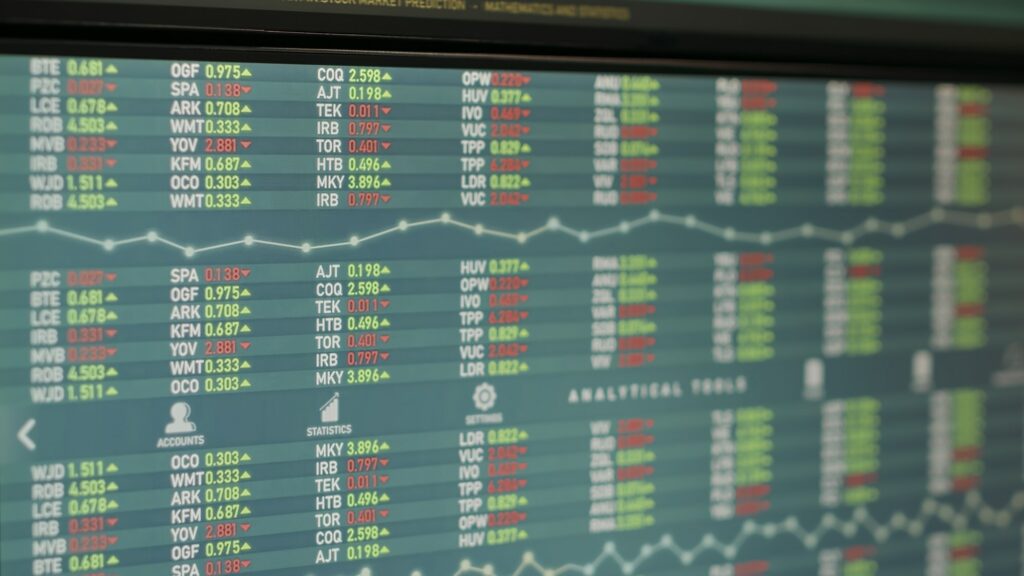Trading Psychology
A person’s trading performance may decline for a variety of reasons. Many, such as political and economic events, are outside of our control since they are external. An individual may, however, enhance their trading skills by gaining a deeper comprehension of the internal elements that influence decision-making. This article will teach you about the 7 guilts in trading psychology and how to avoid them.
1. Confirmation Bias
The urge to seek out information that confirms one’s opinions is known as confirmation bias. Due to this bias, traders may only pay attention to data that confirms their beliefs about a certain asset.
How to avoid confirmation bias?
Before making a trade, you must decide on your exit plan. You can know what your maximum loss is by defining your risk level before a trade. It helps you psychologically get ready for the loss and greatly reduces the need for confirmation bias.
You must be prepared to lose money. There is no trading strategy that consistently wins. Use hard stops to get you out of your position if you have trouble minimizing your losses when you’re meant to. To lessen the impact of psychological biases on your trading, automate as much of it as you can.
2. Illusion of Control
The habit of people believing they have more control over events is known as the illusion of control. This happens when someone uses numerous market TAs and posts the truth on as many of them as they can. The false sense of control can lead to unwise decisions and undesirable results that might have been easily avoided. It can cause investors to trade more frequently than is recommended, to keep their portfolios under-diversified, or to utilize limit orders and other similar strategies in order to feel as though they have a false feeling of control over their assets. Investor overconfidence is generally a result of this bias.
How to avoid the illusion of control?
Traders need to be aware that all forms of investment involve the use of probability; thus, various outcomes are possible but hard to control. Investors should try to compile a list of all the variables that could affect an asset’s price in order to fully understand this point. They would discover that there are factors at the level of the government, the competitors, the macro economy, the market, and so on. It is nearly impossible to control this complicated system because of the large number of different elements at play.
So traders need to keep in mind that simple is best. The simple level of a good-enough trading strategy with a good enough winning probability will help avoid this illusion of control.
3. Mental Accounting Bias
Mental Accounting refers to a tendency to treat one’s money differently depending on its source or intended purpose. For instance, if a trader has $1000 and a profit of $100, they would engage in riskier trades in the belief that they will only lose the $100 profit. But in reality, whether it is profits or capital, they are all the trader’s assets.
How to avoid mental accounting bias?
If the profit is large, convert it to hard assets. Only trade with your original capital and occasionally withdraw your profits. You can always evaluate and increase your capital.
4. Recency Bias
Recency bias impairs a trader’s decision-making ability and negatively influences how they assess the market. It is most frequently seen in forex when a trader concentrates primarily on his most recent trading decisions and ignores the bigger picture.
How to avoid recency bias?
Recency bias is almost impossible to prevent totally since people are genetically wired to act on emotions sparked by recent, more concrete events. However, by keeping track of your progress as well as your successful and unsuccessful trades, you’ll be able to get a broad picture of your overall trading performance and avoid focusing just on recent trades.
If it helps, put your trade strategy in writing and be sure you follow it. As a result, you’d be more focused on carrying out your trading strategy and less likely to succumb to your emotions, such as overconfidence brought on by a winning run or more hesitation brought on by a trading slump.
5. Herd Mentality
There are 2 types of herd mentality.
FOMO (fear of missing out) refers to the fear that a trader or investor has about missing lucrative trading or investing opportunities. When an asset increases in value dramatically over a brief period of time, FOMO is especially common.
FUD (fear, uncertainty, and doubt) is often a tactic to sway opinion by spreading unfavorable, questionable, or false information, and it’s a manifestation of the appeal to fear.
How to avoid herd mentality?
You may prevent FOMO by analyzing and calculating the risk of purchasing digital assets each time, so you don’t buy assets at high prices. You must show patience and avoid price chasing in short-term trading. There are plenty of other opportunities.
6. Loss Aversion
Loss aversion bias is the false notion that losses are greater than winnings of equal size. Simply put, loss aversion is the tendency to avoid losses over achieving gains. We usually hold the belief that it is preferable to avoid losing $100 than to find $100, even though the probability is equal for both outcomes. Numerous studies have demonstrated that most people typically experience the joy of a profit as being less acute than the agony of loss. A person is unable to make rational judgments when there is an emotional value associated with a loss.
How to avoid loss aversion?
By avoiding becoming excessively invested in your trades on an emotional level, you may prevent loss aversion. Investments come with risks, many of which are beyond your control. You cannot always be correct. Create a strategy for handling your capital. Everything is merely a matter of probability. When you make a bad judgment, don’t be afraid to cut your losses. Give yourself room to fail.
7. Overconfidence
This trading psychological issue arises when an investor consistently wins, so they become more emotional and less disciplined.
How to avoid overconfidence?
To prevent overconfidence, be realistic about the market and your trading ability. Be honest with yourself about your trading talents and abilities as you carefully analyze the market patterns utilizing charts, news, and other data.
In Closing
Sometimes guilt in trading psychology can serve as a form of protection, but when we trade, we frequently feel bad about the losses that come with the job. It’s important to comprehend how to manage unproductive guilt if you experience it. The more calmly and freely you can deal, the more profit you’ll make.






